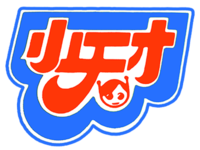Loading AI tools
Line of Famicom clone consoles From Wikipedia, the free encyclopedia
Micro Genius (Chinese: 小天才; pinyin: Xiǎo Tiān Cái; lit. 'Little Genius') is a brand name used for Famicom clone consoles marketed in several countries around the world, particularly in areas where Nintendo consoles were not readily available, including the Middle East, Southeast Asia, South America, Eastern Europe, South Africa and East Asian countries excluding Japan and South Korea. The name was initially and most famously used by TXC Corporation for its range of Taiwanese-made Famicom clones, software and accessories, but later passed to other companies and remains in use today on rebranded Chinese Famicom clones and LCD games.
 | |
| Company type | Private |
|---|---|
| Industry | Video games |
| Founded | Late 1980s |
| Defunct | 1994 |
| Fate | Closed |
| Headquarters | , |
| Products | Famiclones (late 1980s–mid 1990s) Video games (1991–1994) |
In some countries during the early 1990s, Micro Genius Famicom clones were the most popular game consoles,[1] mirroring the popularity enjoyed several years earlier by Nintendo's official Famicom and NES in Japan and North America. However, they rarely reached markets where Nintendo was more recognisable, as they often infringed on Nintendo's patents in those regions.[2]
There are several models of the Micro Genius, but the Micro Genius IQ-501 was particularly popular until the official introduction of competitors like Sega and Nintendo in the regions where it was sold.
The games came in form of 60-pin cartridges, identical to those of the Japanese Famicom, which were inserted from the top into a cartridge port.
A standard Micro Genius console package came with two wired controllers and sometimes a light gun. Some models also used an RF antenna to transmit signals wirelessly to a receiver inserted in the TV. Later incarnations came with IR wireless controllers.
Micro Genius consoles include:
Accessories for other consoles were also sold under the Micro Genius brand, including lightguns and controllers for the original NES, and wireless controllers for the Mega Drive and SNES.
Most versions of Micro Genius are compatible with Famicom cartridges but require a 72-pin to 60-pin adapter to play NES games, although certain models were produced in both 60-pin Famicom and 72-pin NES versions. It was often sold with cartridges containing multiple games. The 60-pin Famicom versions also generally supported expansion audio chips such as Konami's VRC6 and VRC7 making them a more affordable alternative for those in Europe wanting to play Famicom games with expansion audio without making modifications to the console as long as they don't mind 50 Hz slowdown.
A series of original Micro Genius games, such as Chinese Chess and Thunder Warrior, was produced in both Famicom and NES format, but unlicensed copies of Japanese games remained more popular in the countries where the console was sold.
On the list, all Idea-Tek games were later re-released by the same TXC/Micro Genius.[14][15]
| No. | Title | Original release |
Notes |
|---|---|---|---|
| 1 | F-15 City War | 1990 | Released by Idea-Tek. |
| 2 | Puzzle | 1990 | Released by Idea-Tek. |
| 3 | Chinese Chess | 1991 | 1) Also known as Zhōngguó Xiàngqí. 2) In some versions the game is misspelled, credited as "Chinese Chese". |
| 4 | Creatom | 1991 | |
| 5 | Enjoyable Horse Racing[16] | 1991 | 1) Also known as 1991 Du Ma Racing (1991 Dǔ Mǎ Dàsài). 2) Released by Idea-Tek. |
| 6 | Mahjong Block | 1991 | 1) Released by Idea-Tek; a Mahjong theme version of Poke Block. 2) The game was also released and published (with the addition of nudity) by Hacker International as AV Dragon Mahjang. |
| 7 | Poke Block | 1991 | 1) Released by Idea-Tek. 2) In 1992, was re-released by TXC and published by American Video Entertainment as Stakk'M. |
| 8 | Rad Racket: Deluxe Tennis II | 1991 | Released by Idea-Tek. |
| 9 | Venice Beach Volleyball | 1991 | Released by Idea-Tek. |
| 10 | Xiǎo Mǎ Lì | 1991 | 1) Released by Nei-Hu Electronics and distributed by Idea-Tek. 2) Re-released by TXC as Bingo. |
| 11 | Policeman | 1992[17] | Game similar to Bonanza Bros. by Sega. |
| 12 | Strike Wolf | 1992 | |
| 13 | Thunder Warrior | 1992 | 1) Also known as Hōng Tiān Zhìzūn. 2) An adapted version was released by Gluk Video as Gluk: The Thunder Warrior. |
| 14 | 3 in 1 Supergun | 1993 | 3 games in 1: Clown, Snake Charmer, and Shooter. |
| 15 | Journey to the West | 1994 | 1) Also known as Western Heaven (Xītiān Qǔjīng). 2) Developed by Chengdu Tai Jing Da Dong Computer Co. |
Seamless Wikipedia browsing. On steroids.
Every time you click a link to Wikipedia, Wiktionary or Wikiquote in your browser's search results, it will show the modern Wikiwand interface.
Wikiwand extension is a five stars, simple, with minimum permission required to keep your browsing private, safe and transparent.